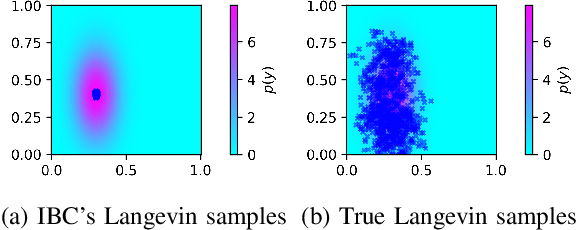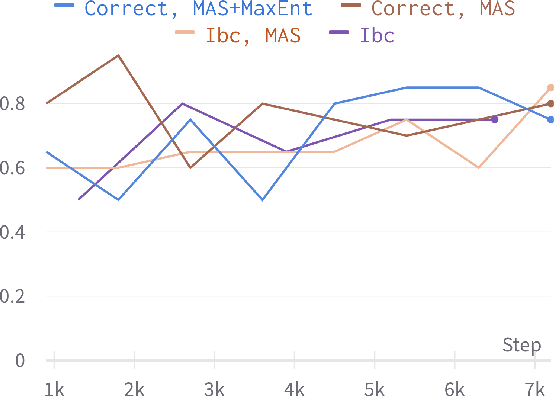Get our free extension to see links to code for papers anywhere online!Free add-on: code for papers everywhere!Free add-on: See code for papers anywhere!
Duy-Nguyen Ta
Conditional Energy-Based Models for Implicit Policies: The Gap between Theory and Practice
Jul 12, 2022Figures and Tables:



Abstract:We present our findings in the gap between theory and practice of using conditional energy-based models (EBM) as an implicit representation for behavior-cloned policies. We also clarify several subtle, and potentially confusing, details in previous work in an attempt to help future research in this area. We point out key differences between unconditional and conditional EBMs, and warn that blindly applying training methods for one to the other could lead to undesirable results that do not generalize well. Finally, we emphasize the importance of the Maximum Mutual Information principle as a necessary condition to achieve good generalization in conditional EBMs as implicit models for regression tasks.
* Submitted to RSS 2022 Workshop: Implicit Representations for Robotic
Manipulation (https://imrss2022.github.io)
Via
 Add to Chrome
Add to Chrome Add to Firefox
Add to Firefox Add to Edge
Add to Edge